The passionate force behind “Standing in the Shadows of Motown” tells FBPO how he shared the genius of James Jamerson with the whole world!
Exclusive interview with FBPO’s Jon Liebman
December 26, 2011
Allan Slutsky, also known as “Dr. Licks,” is a GRAMMY award-winning guitarist, arranger, producer and historian, originally from Philadelphia. Slutsky has authored several music transcription and method books, most notably, Standing in the Shadows of Motown, a tribute to Motown bass legend James Jamerson. The book, published in 1987, went on to win the Rolling Stone/BMI Ralph J. Gleason Music Book award in 1989. Slutsky has since produced a documentary film of the same name, released in 2002, which won two GRAMMY awards.
FBPO: How would you describe your musical upbringing?
AS: I’m originally a “folkie,” who joined an all black R&B band as a guitarist in my high school, around 1967. I was playing black clubs in Philly, like The Cadillac Club and the Hi-Line Lounge when I was 15 years old, mostly Motown, Memphis, James Brown and other R&B hits of the day. I took music courses at Temple University and eventually wound up at Berklee College of Music in Boston, where I became an arranger.
FBPO: What kind of work were you doing, once you became a professional musician?
AS: I played all kinds of stuff, originally—bluegrass, acoustic blues, classical mandolin—and a lot of top 40 and wedding bands all around Philadelphia and South Jersey. Then I became a pit orchestra musician in the Atlantic City Casinos, playing behind headliners like Bernadette Peters, Don Rickles and Luciano Pavaratti. I also did a ton of pit orchestra playing in Broadway musicals like Mama Mia, The Color Purple, Chicago and others.
FBPO: Where did the “Dr. Licks” name come from? What all did you do under that moniker?
AS: I was in the house band that played for the Philadelphia ’76ers basketball team in the early ’80s when they had Julius “Dr. J” Erving. At the time, I had just started my book publishing company, which was all about selling transcriptions or “guitar licks.” So, he was Dr. J; I was Dr. Licks.
FBPO: You’re a guitar player. What got you interested in James Jamerson, a bass player?
AS: Gerald Veasley, a great Philly bassist turned me on to him when I was writing a book called The Art of Playing Rhythm & Blues.
FBPO: How did you go about the developing Standing in the Shadows of Motown? What approach did you take?
AS: I didn’t take any approach; it took me! Basically, it was an obsession and a suicidal willingness to do whatever it took to reach the goal. I’m still amazed it ever happened. Every day brought five dozen obstacles and dead ends. It was a real test of faith.
FBPO: That sounds like quite an ordeal.
AS: You have no idea! Twenty years of my life.
FBPO: What kinds of reactions were you getting when you started contacting all those bass players?
AS: Most of them were very gracious and instantly volunteered to participate in the project. I only had a few turndowns. Everyone loved James and wanted to see the project happen.
FBPO: Tell me about the movie. You broadened the scope to include all the Funk Brothers, not just Jamerson.
AS: Originally, we were trying to do a dramatic feature film on JJ, but we needed twenty million bucks and it looked, at the time, to be an impossibility. Three mil was more doable for a documentary. But I also wanted to include all the guys in the film, since James already had his (posthumous) moment in the sun from the book.
FBPO: What are some of the more significant things you learned having undertaken these massive projects?
AS: That you’d better cancel the rest of your life while you’re working on them because they’ll never happen unless you dedicate yourself solely to those type of projects. They’re all-consuming.
FBPO: What else have you got up your sleeve? What would you like to do that you haven’t accomplished yet?
AS: I have a great classical trio with mandolin, accordion and upright bass, called The Night Café. We play mostly classical violin music, Argentinian tangos and film score classics we arrange. I’m also working on helping Jamerson Jr. get out on the road with his own act. I have a book about the entire SITSOM experience that I just finished. It will be out sometime in 2012.
I still do a lot of arranging. In fact, I’m currently working as one of the staff arrangers for American Idol. In addition to all that, I have two other documentaries I’m scripting at the moment. One is about the Chitlin’ Circuit and the other is about Doo Wop. I’m currently looking for funding, my favorite – and most hated – task.
FBPO: How have the Jamerson/Funk Brothers projects affected the way you view bass players?
AS: First of all, I became a pretty good sight reader on bass from all the transcriptions I did, despite the fact that I’m a guitarist. Also, my ears now tend to gravitate toward the bass on records more than it used to prior to SITSOM.
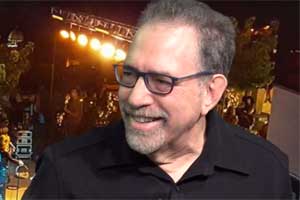
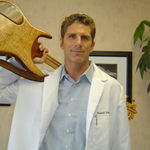
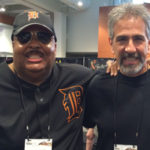

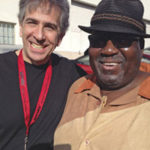

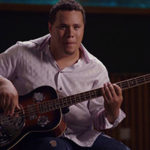
Dear Dr. Licks: My sister threw away my husband’s white “Standing in the Shadow of Motown” Tshirt and I’d like to buy another. I will buy the book again, of course if need be, but I need the shirt. Let me know what to do. (He’s a bassist so he’s mellow but mad at us. )
We’ve got the book (a classic!) in our store. Here’s the link: https://forbassplayersonly.com/product/standing-in-the-shadows-of-motown/
Dear Allan I just heard of Bobby Rydell’s passing 😭I once had a sined autographed photo he gave to me & lost it in a move. I never got over losing that photo ! He sang “Forget Him ” to me backstage when I played hookey from work in the Catskills He was such a sweetheart & a gentleman.I’ve met many a celebrity but meeting him made that evening one I’ll never ever forget ! Do you happen to have an autographed copy of his book that I could buy?
Sincerely,Sharona Victoria